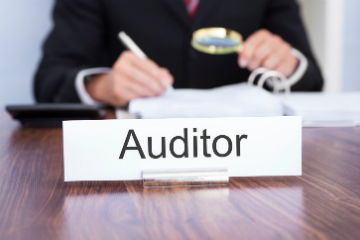Provincial Audit Month 2015
Corruption undermines service delivery, economic growth and the effective use of limited resources, both in government and the private sector. As part of Provincial Audit Month, we tell you how you can help us fight fraud and corruption in the province. 
What is corruption?
Corruption can take many forms, but basically it happens when someone uses their position of power or authority for personal gain or to benefit someone else.
Here are some examples:
- Asking for a bribe.
- Offering or accepting a bribe.
- Taking friends and family members on official business trips.
- Giving contracts to friends and family members.
Corruption can often be difficult to spot, though. Sometimes the difference between building normal relationships with service providers and corruption can be blurred, especially when it comes to activities such as working lunches and off-site meetings. However, the best question to ask is: "If I accept this, will it unfairly influence my professional decisions?" If the answer is yes, then there is a risk of corruption occurring.
Corruption is closely linked to fraud and theft. Fraud happens when someone lies to benefit themselves or cause someone else harm, financially or otherwise. Theft is when someone takes money or goods that don't belong to them.
All of these are illegal and can happen at any level of government, and the South African Government has created structures to help combat corruption, fraud and theft in the public service.
How can you help?
You can help fight corruption, fraud and theft across the province by reporting any irregularities to any of these institutions:
- the Southern African Fraud Prevention Service helpline at 0860 101 248,
- the Corruption Watch helpline at 0800 023 456,
- the South African Revenue Services (SARS) hotline at 0800 002 870,
- the Safe Schools Call Centre to report cases of corruption in our schools at 0800 454 647, or
- South African Social Security Agency (SASSA) at 0800 601 011.
Note: Any report or tip-off can be made anonymously.

You will need to provide detailed information on the suspected irregularity to ensure that matters can be investigated properly. If you want to make a report, you should try to provide as much of the following information as possible on:
- the suspected irregularity (e.g. how, when and where it occured etc.),
- the employees / co-workers involved (e.g. their names, job level etc.), and
- the accuser (e.g. if you witnessed the wrongdoing and if you're willing to testify against the accused).
Corruption in government
Help us curb corruption, fraud and theft in government by phoning the national toll-free anti-corruption hotline anonymously at 0800 701 701 to report any wrongdoings.
Other anti-corruption hotlines in government departments are:
- Human Settlements: 0800 204 401,
- Government Employees Pension Fund (GEPF): 0800 434 373, and
- Traffic: 0861 400 800 (not toll free).
More information


